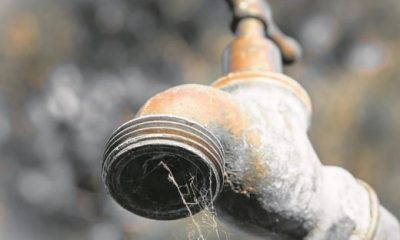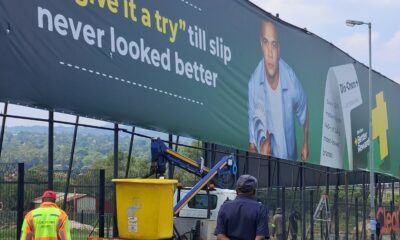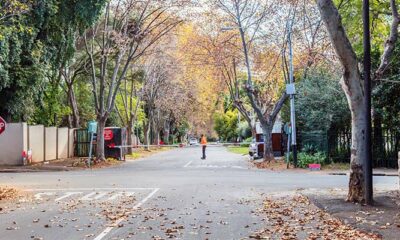News
Why Free Electricity in Joburg Might Not Be as Simple as It Sounds

City Power’s big promise to struggling households comes with serious complications
In a city where daily life is already strained by load shedding, crumbling infrastructure and steep tariff hikes, Johannesburg’s City Power is offering a spark of hope, but that spark may be flickering more than shining.
City Power has launched a drive to register 130,000 qualifying households for its Free Basic Electricity (FBE) programme, which will provide 50kWh of free electricity every month to indigent residents. The campaign runs from June 17 to July 31, with pop-up registration stations springing up in malls, taxi ranks, SASSA offices, churches and community centres across the city.
At face value, it’s a lifeline. But behind the announcement, a more complex and frankly messy picture is unfolding.
A Noble Idea in a City Running on Fumes
Let’s not pretend this isn’t a necessary intervention. For many Joburgers, the struggle to afford electricity is very real.
Vuyolethu Cokotho, 25, from Mayibuye, shared her day-to-day challenges with IOL:
“It is very difficult to survive without electricity. You have to go around asking people to charge your phone or store your meat. And sometimes they don’t even have meat themselves.”
It’s stories like hers that show why access to even basic electricity matters. It’s not just about powering appliances — it’s about dignity, health, safety, and a sense of normalcy.
The Problem? Talk is Cheap. Electricity Isn’t.
While City Power spokesperson Isaac Mangena insists the programme is meant to ease the burden and reduce illegal connections that damage infrastructure, energy expert Chris Yelland isn’t convinced this plan will go far or last long.
“It’s a noble ambition,” Yelland told IOL News, “but it’s unlikely to be achieved this year or next.”
Why? According to Yelland, Johannesburg faces a cocktail of systemic issues: rapid urbanisation, aging infrastructure, widespread electricity theft, and — most importantly — a city in serious financial distress.
“80% of residents in townships don’t pay for electricity,” he pointed out. “The city wants to provide free electricity to everyone, but who’s paying for it?”
The Indigent Register: A Hidden Barrier
Another major flaw? The indigent register itself. To receive free electricity, households must be on this list — and stay on it.
But here’s the catch: residents have to re-register every six months. For many, that’s a bureaucratic hurdle they simply don’t have the time, energy, or access to overcome.
“That’s put a lot of people off,” Yelland says. “Many who should qualify aren’t even on the register.”
So while City Power’s target is 130,000 new sign-ups, the real number of households in need may be far higher — and harder to reach.
A City of Contradictions
In a cruel twist, wealthier residents are leaving the grid altogether, investing in solar to avoid endless blackouts. Meanwhile, poorer communities are stuck either paying more for less or risking their lives through dangerous illegal hookups.
Ironically, City Power recently introduced a R200 fixed charge for small prepaid customers, partly to offset revenue lost from wealthier customers going off-grid. This further penalises low-income households, the same ones now being promised free electricity.
It’s a policy balancing act that’s starting to look more like a tightrope walk over a flaming power station.
Public Reactions: Hope Meets Cynicism
On social media, reaction to the FBE programme has been mixed. Some praise the effort, while others call it a “PR stunt” in an election year, pointing to Joburg’s long list of broken promises when it comes to service delivery.
One user on X (formerly Twitter) wrote:
“Fix the power we do pay for before offering what you can’t sustain.”
The Bigger Picture: Why This Matters
Johannesburg isn’t alone in this dilemma. South African metros are under intense pressure to provide basic services in an environment where the cost of living is soaring, infrastructure is failing, and trust in local government is eroding fast.
The FBE programme is, in theory, a progressive move. But as with many things in this country, the challenge isn’t in the idea, it’s in the execution.
For now, the best hope is that struggling households will benefit from at least a few months of relief, even if the long-term future of the programme remains uncertain.
And maybe, just maybe, it’ll force the city to reckon with the deeper issues behind its energy crisis, starting with honesty, transparency, and the political will to follow through.
Free Power, Fair Future: Joburg’s Electricity Lifeline for Struggling Households
{Source: IOL}
Follow Joburg ETC on Facebook, Twitter , TikTok and Instagram
For more News in Johannesburg, visit joburgetc.com



























